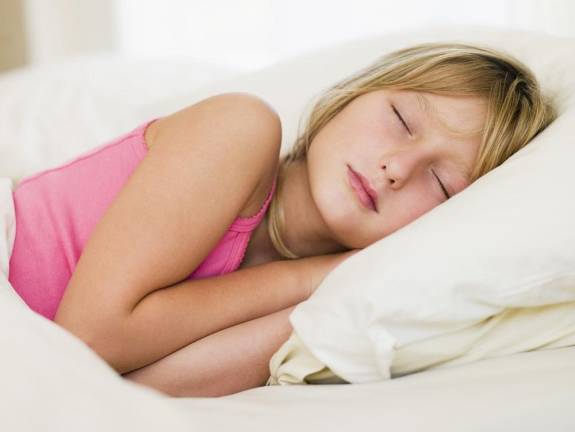The only thing more universal than the need for sleep is the list of things that can cause sleep problems. In September, we told you what to eat at bedtime (milk and cookies) and what to avoid (spicy protein foods). Now the folks at the Centers for Disease Control and Prevention and the National Institute on Aging add a codicil: To sleep well, stay young.
The younger you are, the better you are at sleeping. Teenagers who sleep well into the morning (or afternoon) are not being lazy necessarily, they are following the body’s natural rhythm to grow best while asleep. Sleep, to that age group, is not a luxury; it is a necessity. But as an individual adds on years, the recommended seven to nine hours a night in dreamland may increasingly become a dream. Growing older doesn’t just expand your waistline and lower your energy. It also affects your ability to get a good night’s rest.
Like Carl Sandburg’s famous fog, the problem creeps in on little cats feet, one decade at a time. For many women, the first hint arrives in their 20s right along with the first baby when the American Thyroid Association notes that as many as one in every ten women develop postpartum thyroiditis, an inflammation whose side effects include insomnia. On the other side of the bed, studies dating back to 1997 show that male sleep apnea (multiple awakenings due to breathing problems) shows up around the same time.
Fast forward ten years, and California psychiatrist and sleep medicine expert Alex Dimitriu tells Healthline.com that the stress of career concerns may keep you awake. His prescription? Forget counting sheep and zero in on “exercise, meditation, regular bed and wake times” plus “connecting with friends and family outside of your immediate household.”
As you slide into your 40s, hormonal changes take center stage. Both sexes experience a drop in the production of the sleep-inducing hormone melatonin. Yes, supplements are available in every drug store. But the American Academy of Sleep Medicine (AASM) recommends against them due to side effects ranging from headache to mood swings and interactions with meds such as blood thinners. For women, as menopause approaches, The Sleep Research Society (SRM) explains that declining estrogen levels and nighttime hot flashes interfere with brain functions governing restful repose.
Cross the half century line, and everything that happened before happens more. Mayo Clinical sleep disorder specialist Eric J. Olson explains that older adults tend to sleep more lightly for shorter periods of time. They also wake up more often for a trip to the bathroom. Altogether, it’s harder to get a good seven hours’ rest. And that, Olson says, may trigger to weight gain, high blood pressure, heart disease, stroke, and faulty memory, plus depression.
Dr. Dimitriu’s work-arounds include exercise during the day and a regular bedtime and waketime schedule so your body knows where it’s supposed to be when the lights go out at night and dawn breaks the next morning.
In the end, if all fails and you are still wide-awake night after a sleepless night, consider consulting one of Manhattan’s sleep med centers:
NYU Langone Health Sleep Disorders Program (https://nyulangone.org/care-services/sleep-disorders-program), Weill Cornell Medical Center’s Center for Sleep Medicine (https://weillcornell.org/services/neurology/center-for-sleep-medicine), or the seven, yes seven, Mt Sinai sleep center sites around town (https://www.mountsinai.org/care/pulmonology/services/sleep-disorders/locations)
Sweet dreams.

